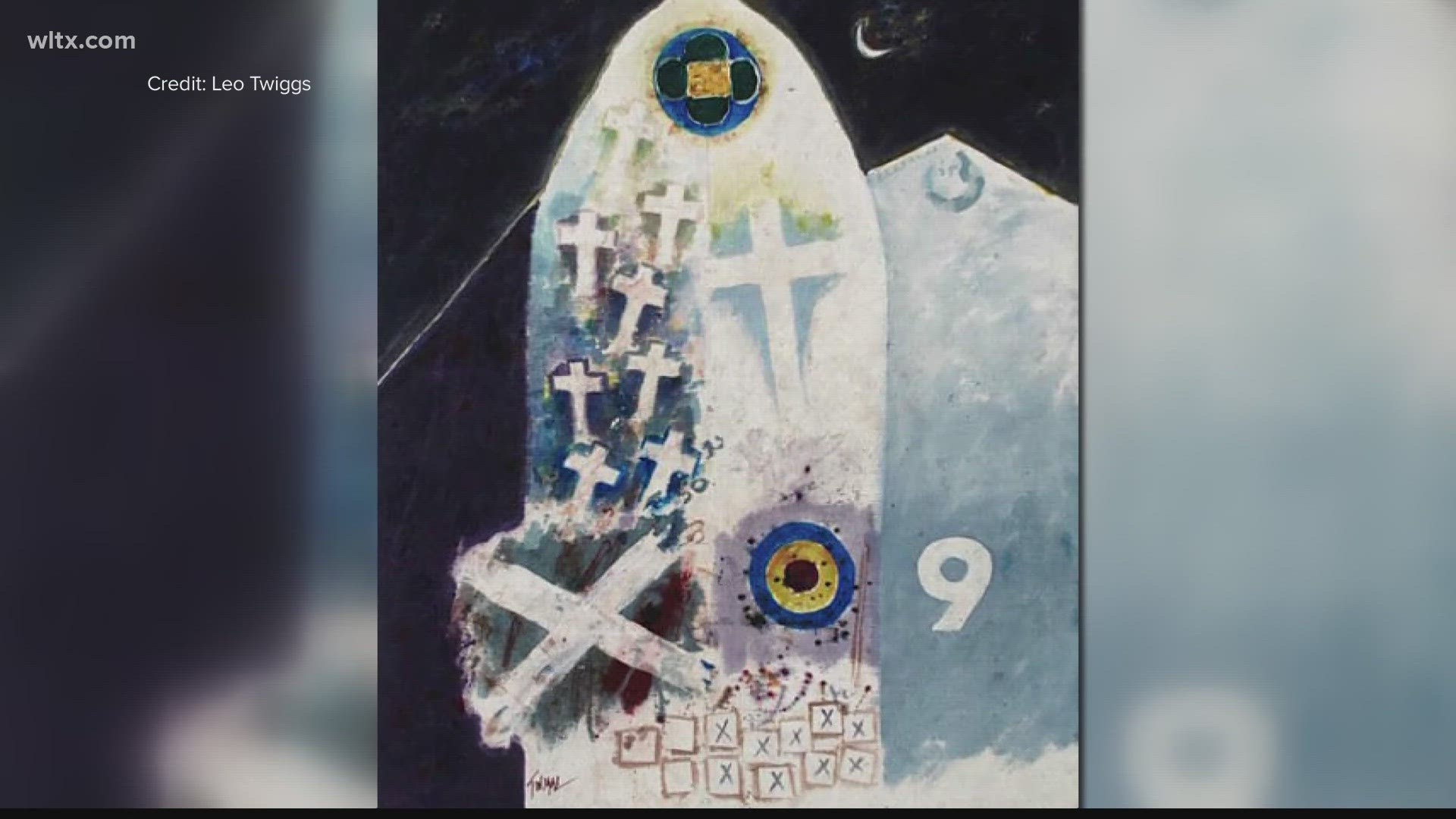ORANGEBURG, S.C. — Dr. Leo Twiggs is an Orangeburg artist who has blazed a path of many firsts in South Carolina.
“As an artist, you don’t retire. I got a studio here. I sit down here and think of ideas. Look around and see what I’ve done," said Twiggs.
He was the first African American to receive a doctorate in art from the University of Georgia, and he eventually went on to develop South Carolina State University's fine arts program.
He says many of the artists he's taught over the years have gone on to accomplish their own successes.
“What I wanted my students to know is that they don’t have to stand down to anyone because they’re gonna get the best education they can get," said Twiggs.
He uses an Indonesian-based art technique called Batik where he draws intricate patterns on natural fabrics. His art has been featured in exhibits across the world from New York, to Rome, and Switzerland. However, he established his home studio in Orangeburg.
“When I started doing batiks, I remember the dresses my mom wore, my grandmother wore, when she went to the store and there were patterns and things like that and she said oh isn’t this pretty and all that and it was something I remember that I wanted to try to express in my work," said Twiggs.
His art is a reflection of real-life events. For example, his Requiem for Mother Emanuel series was created in honor of the nine lives lost during the 2015 Emanuel AME church shooting in Charleston.
He also painted a picture in memory of George Floyd who was killed at the hands of police in 2020.
“I’m always dealing with life experiences and hopefully when people see that they can relive that experience," said Twiggs.
Most recently, he was awarded the Dean's Cross award in Charleston from the Virginia Theological Seminary in recognition of his artistic impact. Although he retired in 1998, he has no plans of putting down his paintbrush anytime soon.
“We African Americans stand on the shoulders of those who went before us. That’s how we got to where we are and we admire those who made strides and we offer them our shoulder to stand on.”

